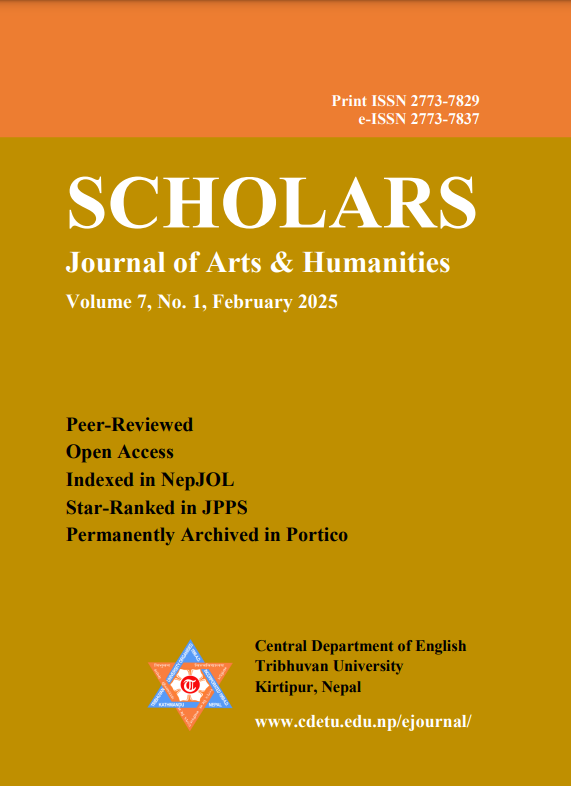Dramaturgy as Shared Message: A Study of Representation of Elites in Sama’s Plays
DOI:
https://doi.org/10.3126/sjah.v7i1.75670Keywords:
Dramaturgy, Nepali theatre, elites, Rana familyAbstract
Balkrishna Sama (1902-1981) was born in the elite Rana family at times when common Nepalis aspired for liberal changes in politics, art, and lifestyles. He wrote plays and poetry, and served influential academic centers run by the Rana oligarchy. Often termed as the ‘father’ of modern Nepali theatre by literary critics and historians, he has also been criticized by leftist thinkers and critics for not daring to challenge the regime. Bestowed with the job of controlling publications in the domain of arts and literature in the capacity of director general of Gorkha Bhasha Prakashan Samiti (Nepali Language Publication Committee), he was also aware of the unstoppable wave of changes that Nepalis were ready to experience during the period. This paper analyses the position he takes while representing the members of the class he comes from. For this, it first contextualizes his plays and analyzes them through Stuart Hall’s concept of ‘representation’. The paper draws a conclusion that by projecting the images of Nepali elite characters marred with inability and inefficiency in their lives, Sama shares not only his understanding about the people of his class, but also the message that existing social order needed to go through reformation. He holds a valid understanding of human nature and Nepali society, and knows how to represent the world of Nepali elites he was familiar with.
Downloads
Downloads
Published
How to Cite
Issue
Section
License

This work is licensed under a Creative Commons Attribution 4.0 International License.
© Central Department of English, Tribhuvan University and Authors




